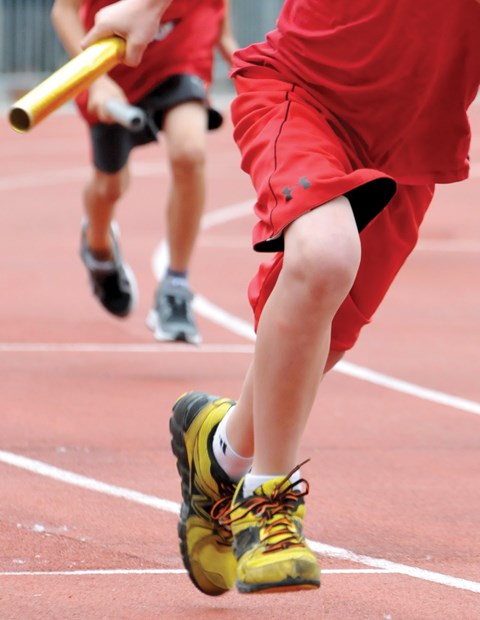Do you perform well during training or practice but choke in competition?
Pre-race jitters are a common complaint among competitive athletes. Whether you are a newcomer to your sport or a seasoned veteran, this phenomenon can get the better of you.
Sometimes referred to as choking, it will inevitably diminish your ability to perform at your best. Athletes can choke on game day because they have an audience or they have extremely high expectations of their success.
The way in which the athlete talks to himself, and how he interprets his situation can either add to or reduce his anxiety.
A certain amount of tension or jitters can be beneficial to the athlete. For each athlete this baseline is different, so the key to all of this is knowing the level at which you perform at your best.
Too much anxiety or tension can cause sleep disturbances, increased heart rate, digestive issues, irritability or negative self talk, all of which can adversely affect your performance on the field.
However, the opposite can be true as well, for example, being too relaxed can inhibit an athlete's performance. Sprinters for instance can often be seen doing vertical jumps before the gun goes off to stimulate the body and essentially wake it up.
Anxiety itself is not the problem. Learning how to use this adrenaline to our advantage, to power our performance, is critical in turning anxiety from a liability into an advantage.
Some simple mental training tips will help allow this process to unfold.
First, recognize that pre-race jitters are normal and that the adrenaline rush you feel is normal and positive. Accept it without dwelling on it. These feelings will pass once the race starts and this adrenaline will help fuel your performance.
Visualize yourself doing it right. By doing this, you are creating a positive image in your mind in order to set an intention. Here, you are using your imagination to create your reality. We do visualization all the time, but unfortunately most often it is negative as we imagine the worst-case scenario. Olympic athletes have been practising visualization for years, so by thinking like an Olympian we can perform like a champion.
The legendary Muhammad Ali said it best, "The man who has no imagination, has no wings."
Listen to your inner voice. Is it negative or positive? Negative self talk will adversely affect your performance. Reframe statements into the positive. Replace, "I feel psyched out by my competition" with "I can do this, I have trained hard and I am going to race my best."
And finally, race with abandon, as though you don't care about the outcome. By focusing only on the present moment, you will quickly get your head back in the game and find yourself in the zone.
Perceived stress and dwelling on past mistakes prevent the athlete from getting in that zone where they can perform at their best. In the present moment there is no room for doubt, only positive action, and when you look only at what you need to do right now, your score, result and time will take care of itself.
Focusing on your head game will help unlock your full potential as an athlete. In order to have a peak performance, your mental training needs to match your physical training. An energized mind will focus beyond the impossible to achieve the possible.
You may be an amateur athlete or you may be a professional, but one thing is certain, all athletes share the same potential.
Michelle Newton is a certified performing edge coach, competitive athlete, author and classical homeopath. Got a sport psychology question? Email [email protected] or visit momentumsport.ca.



